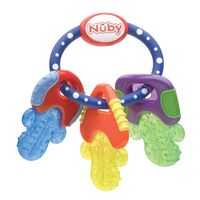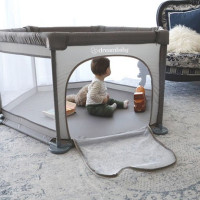The social development of children is something that has grown in importance over the years.
Gone are the days when they were left to their own devices in large extended families, with very little chance for age-appropriate peer-based play.
Now we focus on properly “developing” their social skills in age-appropriate ways – from childcare, through school, after school clubs etc. – we recognise the importance of those “social” opportunities. We even schedule extra play-dates outside these formal opportunities, so children can have more opportunities for peer socialisation!
Benefits of peer socialisation
We know all the advantages of providing opportunities to mix with peers in environments appropriate for age: children learn how to get on and they are safe! They must learn to share; cooperate with each other; follow group “rules”; develop resilience when things don’t go to plan; learn to use language properly to communicate; assert themselves and help others. There are just so many learning opportunities that peer-based socialisation gives.
And in the teenage years we provide all manner of ‘youth groups’ and ‘teen forums’ where older children can ‘find themselves’ socially with their peers, away from the “annoying” little kids and “boring” older people. In fact forming their own “identity” and “individuating” is now considered vital as they come to develop their adult self.
Peers as an impoverished social environment
Are peer-based environments really the answer to socially developing children? When we see bullying, children becoming isolated from the ‘in crowd’, developing psychological problems from exclusion, suffering from lack of peer-acceptance and serious problems like substance abuse and youth suicide, we must wonder has socialisation among peers really worked?
When we see the generation gap increasing in society we must wonder what have we achieved? The sense of belonging in community and family that young people once knew is often eroded, leaving the barest bones of “social group” that has degenerated from “real” community into the community of a youth “gang”: a group of young people basically “rejected” from wider society, on their own and left to forge bonds based on this common sense of rejection.
Restoring balance
Certainly, children’s social development is important, but we might have gone too far with peer-based socialisation and created an imblanced environment, where normal range of social relationships is lost. The “good examples” and “role models” that we seek for children can be found among peers, but they are often few and far between. Also peer pressure often kicks in to make it hard for a group of immature kids to “behave” even if there is one “good apple” in the bunch.
More often it is the maturity of the “generation up” that provides the good social examples, and the social mix that children need. Children are shown and told how to behave by those who’ve made it through the stage below. The increased confidence of the “generation up” allows them to lead the group more effectively and some balance is restored with the wider social mix.
As society forges on with age-appropriate peer-based forums for learning and socialisation, it might be worth stopping from time to time to question, do we have a good balance? And ask whether some children, some of the time, might benefit from richer social opportunity, away from peers!
What do you think? Share with us in the comments.
We may get commissions for purchases made using links in this post. Learn more.




















-

-
-
-
mom101628 said
- 04 Feb 2017
Reply
-

-
-
-
Ellen said
- 29 Jan 2017

Reply
-

-
-
-
mom177164 said
- 28 Jan 2017
Reply
-

-
-
-
mom81879 said
- 09 Jan 2017
Reply
-

-
-
-
june11 said
- 08 Jan 2017
Reply
-

-
-
-
curlytops said
- 08 Jan 2017
Reply
-

-
-
-
mom117465 said
- 07 Jan 2017
-

-
-
-
mom93821 said
- 02 Jan 2017
Reply
-

-
-
-
mom160421 said
- 01 Jan 2017
Reply
-

-
-
-
taynik46 said
- 31 Dec 2016
Reply
-

-
-
-
Ellen said
- 30 Dec 2016

Reply
Post a comment11:42 pm
4:03 am
12:07 pm
8:01 pm
10:34 pm
6:15 pm
11:23 am
-

-
-
-
mom93821 replied
- 20 Jan 2017 , 9:03 pm
Reply8:43 pm
7:25 pm
11:10 am
8:15 am